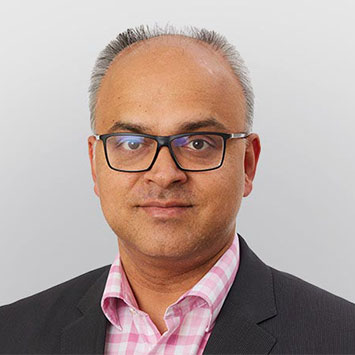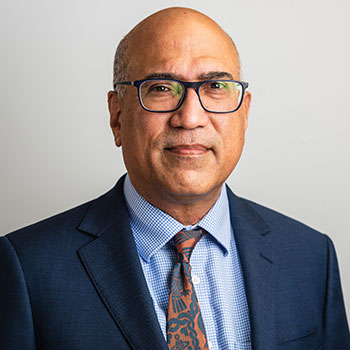What is anal fissure surgery?
Anal fissure surgery is aimed at reducing muscle tension around the anus to promote healing in fissures that haven’t responded to other treatments. It’s typically recommended when a fissure persists for more than 6 to 8 weeks despite conservative approaches like dietary changes and topical medications.
Chronic anal fissures often don’t heal on their own because constant pressure and spasm in the internal anal sphincter prevent the wound from closing properly. Surgery helps by reducing this pressure, allowing the fissure to heal more effectively.
The primary goal of anal fissure surgery is to ease the sharp pain experienced during bowel movements and to enhance the patient’s overall quality of life. If you’ve been struggling with a chronic fissure, exploring surgical options can be a meaningful step toward lasting relief and recovery.
Please call to enquire about the price
Ways to payBefore surgery
Initial consultation
During your initial consultation for anal fissure surgery, your colorectal surgeon will talk to you in detail to understand the severity of your symptoms and determine the best course of action. They will review your medical history, including any previous treatments you have tried and ask about current symptoms like pain, bleeding or discomfort during bowel movements. A gentle physical examination will be done to inspect the area and assess the fissure. In some cases, the doctor may recommend further testing, like anoscopy, to get a clearer view. Your surgeon will explain the surgical procedure (usually initially a Botox injection, proceding to a lateral anal sphincterotomy if this fails) and its benefits, risks and what to expect during recovery. This is also a great time to ask questions, share your concerns and make sure you are comfortable with the treatment plan.
Preparation for anal fissure surgery
Preparation is key to a smooth surgical experience and recovery. Before anal fissure surgery, you will need to follow specific instructions given by your doctor. These may include diet changes, stopping certain medications and other personalised instructions. One important step in preparation is to discuss anaesthesia options with your doctor. Depending on your health and preferences, you may choose a regional or general anaesthesia. You will also need to arrange for transportation after the surgery, especially if general anaesthesia is used, as you won’t be able to drive yourself home.
Bowel preparation is not usually needed for procedures like lateral anal sphincterotomy making the preparation process relatively easy compared to other surgeries involving the bowels, rectum and anal canal. Following these steps can make a big difference to your surgery and recovery.
During treatment
The procedure
Anal fissure surgery is aimed to relieve tension in the anal sphincter, helping it to heal. By relaxing the muscle and improving blood flow to the area, the procedure relieves pain and supports tissue repair. It’s usually a short procedure, and most patients can go home the same day to start their recovery.
Types of anal fissure surgery
There are several surgical options available, each suited to different severities and underlying causes of the fissure. The most common procedure is botulinum toxin (Botox) injection, which aims to relax the anal sphincter muscle and reduce spasm.
A less common but more effective procedure is lateral anal sphincterotomy, which involves a small incision in the internal anal sphincter, again reducing pressure in the muscle to encourage healing of the fissure.
An alternative surgical treatment is advancement flap surgery. This involves using healthy tissue (usually from a nearby area) to cover and repair the fissure, improve blood flow and promote robust healing.
Lateral anal sphincterotomy
This is the most effective procedure for chronic anal fissures. Under general anaesthesia, the surgeon makes a small incision in the internal anal sphincter muscle to release the pressure that hinders healing.
The success rate is high, with around 95% of patients experiencing significant symptom relief. While generally safe, the procedure has a low risk of anal leakage after surgery.
Advancement flap surgery
Used for complex or non-healing fissures, advancement flap surgery replaces damaged tissue with healthy, well-vascularised skin to improve healing conditions. It’s particularly useful for cases related to childbirth or trauma where surrounding tissue may be compromised. Its strength lies in restoring integrity and blood flow to the area.
After treatment
Post-surgery care
Good post-operative care is crucial for a smooth recovery and to minimise complications. Warm sitz baths (ideally three times a day) are recommended to reduce pain and promote healing. Applying topical creams after each bath can help the recovery process, especially during the first week when wounds are most fragile.
Constipation is a common side effect of pain medication, so managing bowel health is important. Increasing fibre intake, using stool softeners and possibly taking mild laxatives can help maintain soft stools and ease bowel movements. If sitting is necessary, avoid sitting for extended periods; if sitting is unavoidable, a foam cushion can be helpful. Over-the-counter pain relievers can be used as needed.
Some bleeding during bowel movements is normal in the early stages of recovery. However, if you notice persistent or worsening bright red bleeding, contact your care team or surgeon immediately. Following these guidelines can make a big difference to healing and your recovery.
Long-term recovery and follow-up
Most patients will experience pain relief soon after a lateral sphincterotomy, and full healing usually takes 4 to 6 weeks. A follow-up appointment is usually scheduled 1 to 2 months post-surgery to check healing. Additional check-ins aren’t usually needed unless issues arise or your surgeon advises otherwise.
During long-term recovery, return to normal activities gradually and listen to your body. Many patients take a few days off work, depending on their comfort and the nature of their job. Recurrence of anal fissures is uncommon and usually related to incomplete healing or underlying conditions.
Risks and complications
As with any surgery, anal fissure procedures have some risks. The most common short-term issue is mild bowel control difficulty, affecting almost half of the patients, though this usually resolves as healing progresses. There is also a small risk of incontinence, post-operative bleeding or infection, though long-term complications affect less than 5% of patients. Knowing these potential issues helps to set realistic expectations and take preventive measures during recovery. Contact your care team if you have any unusual symptoms.
Success rates and prognosis
Anal fissure surgery has high success rates, over 90% of patients have long term relief and return to normal daily activities. Overall, the outlook for patients undergoing surgery is excellent, most will see an improvement to their quality of life.
Appointment and Treatment Plan
Initial Consultation
Your journey starts with a visit to your GP, where you’ll discuss your symptoms and any previous treatments. Based on this, you’ll be referred to a colorectal specialist for a more in-depth assessment.
Treatment Planning
At your specialist appointment, you’ll review your medical history, go over your symptoms and discuss any previous tests or treatments. The surgeon will assess whether surgical intervention—involving a Botox injection, a lateral anal sphincterotomy, or advancement flap surgery—is appropriate for your condition. You’ll be given a detailed explanation of the procedure, what it aims to achieve and what to expect during recovery.
Pre-Operative Assessment
If surgery is recommended, a pre-op assessment will be arranged to ensure you’re medically fit for the procedure. This may include blood tests, review of your medications and evaluation of any underlying health conditions. You’ll also be advised on how to prepare in the days leading up to surgery.
Procedure Day
On the day of your surgery, you’ll arrive at the hospital where the care team will guide you through final preparations. Anal fissure surgery is usually a day procedure under general or regional anaesthesia, so you’ll be able to go home the same day.
Aftercare and Discharge
After surgery, you’ll spend a short time in recovery where the team will monitor your condition and manage any immediate discomfort. Before you’re discharged, you’ll be given clear aftercare instructions—how to keep the area clean, manage pain, encourage healing and prevent constipation. You’ll also be given information about follow-up care and when to contact your doctor if you have any concerns.
Experts
We are proud to provide patients with access to a wide range of clinicians, chosen specifically for their knowledge and reputation in their area of expertise. Our experts align with our values: putting you at the centre of your care and educating you on your options at each step of the journey. We encourage you to learn more about our clinicians and how they can help you below. As always, please contact our patient services team if you require any additional information.
We offer 3 ways to pay for your treatment
We exist to take the stress out of private healthcare.
Our payment options are designed to offer you easy access to our treatments and services. You can choose to pay on the day, spread the cost, or use your private medical insurance.
Our patient services team will guide you through the process, providing clear costs and support throughout your course of treatment so you can focus on the thing that matters most – your health.
Whether you pay in advance, spread the cost, or use your private medical insurance, rest assured you will be receiving exceptional care 365 days a year.
Pay in Advance
Even if you do not have medical insurance, you can still get quick and comprehensive access to private medical care.
We provide transparent pricing from your initial consultation to the completion of your treatment so you know where you stand, every step of the way.
We accept all major debit and credit cards, as well as Apple Pay for UK residents. Please note that we do not accept cash or cheques.
Spread the cost monthly
Paying for your treatment at One Stop Healthcare can be spread monthly from 12 to 60 months, rather than paying in one go.
With an upfront 10% deposit paid, via our Financial partner Chrysalis Finance, we offer various flexible terms to enable you to spread the cost, including 12-months at 0% APR. Click here to find out more.
Monthly payments need to be linked to a One Stop Healthcare treatment over £385 and is subject to a 14-day ‘cooling-off’ period before any treatment can start.
Your on-going payments will be made directly between Chrysalis and yourself. It’s that simple.
Pay using PMI
We are recognised by all major health insurance companies and with our extensive range of services, there are lots of benefits to using your insurance with us. Our patient services team is here to answer any questions you may have about using your private health insurance with us.
Please bring along your policy details including your scheme details, membership or policy number, expiry date and confirmation of eligibility to claim (i.e. your authorisation number). If you do not have these details with you, we will require payment from you on the day. Patients are liable for any amounts not settled by their insurer.
Medically reviewed by Mr Gary Atkin - Consultant Colorectal & General Surgeon on 16/06/2025






